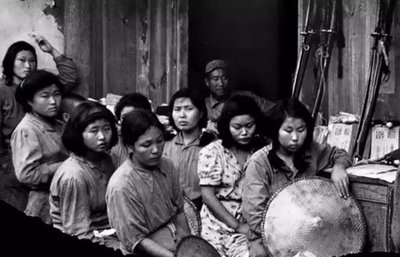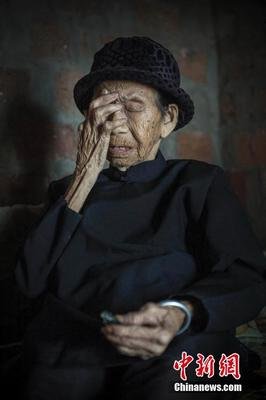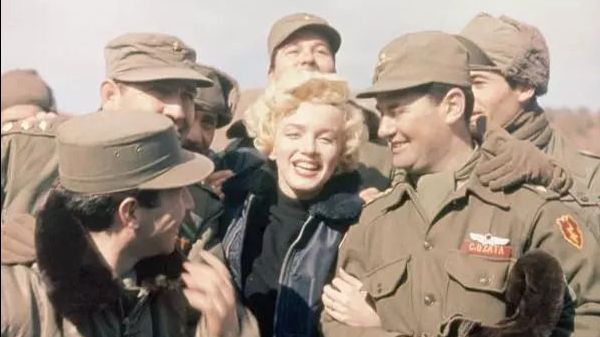Recently, the war between Ukraine and Russia is still ongoing, and the Ukrainian side is trying every means to boost the morale of frontline soldiers. In addition to sending supplies and providing psychological counseling, which are old methods, they have now come up with a new approach: sending female volunteers to the front lines to offer comfort.
These female volunteers are really dedicated, singing and dancing, helping with logistics, and assisting in providing psychological support to the soldiers. Their arrival aims to improve the soldiers' mood, making them feel a bit better, less tense, and less homesick.

However, this has sparked heated discussions online. Many people say that to truly address the soldiers' psychological issues, the war must come to an end.
After all, the power disparity between Ukraine and Russia is too great, and if this continues, the losses on the Ukrainian side will be too severe. From news videos, everyone can see the soldiers' helplessness and sadness. Even though a beautiful woman is twisting and turning in the tent, the soldiers' expressions are like wooden figures, with no spark in their eyes. For them, this feels more like a chore rather than genuine enjoyment.
In fact, what the soldiers want most is to return home alive. The war fills them with uncertainty about the future, and they are always thinking about their families. They face not only enemy bullets but also the ever-present specter of death. What they need is a way to safely return home, not a temporary escape.
So, although the female volunteers' comfort activities are well-intentioned, they may not truly solve the soldiers' problems. The Ukrainian government should perhaps think more about how to end the war through diplomatic means, rather than relying solely on these superficial measures.
Moreover, sending women to the front lines poses too great a risk. How can their safety be guaranteed? What if they encounter the enemy? Furthermore, they should be respected as independent individuals, not treated as tools to boost morale.
In short, the brutality of war cannot be masked by songs, dances, and beautiful women. Only true peace can allow soldiers to lay down their arms and return to their families. This is what they long for most, and it is what we all hope for.
Regardless of the era or region, the lives of women who support the military are often not easy.
Take our classic novel "Journey to the West" as an example, which includes a scene where the emperor sends palace maids to comfort soldiers. In the story, Emperor Taizong of Tang, in his quest for the throne, is covered in blood. Later, he goes to the underworld, where the wronged souls demand his life. With the help of the staff in the underworld, he manages to escape death. This brush with death makes him realize that doing good can atone for sins and lead to a good ending. Reborn, he begins to implement a series of policies to benefit the people, making amends for past mistakes. One policy that piqued my curiosity was that he actually arranged for the old palace maids to marry soldiers on the frontier as a reward for the bachelors.

From the perspectives of imperial power, military affairs, and society, Emperor Taizong indeed took good care of the soldiers. His arrangement not only alleviated the soldiers' loneliness but also reduced the burden on the court. However, when the palace maids arrived at the military camp, they found life difficult. Having lived in the palace for a long time, they were accustomed to a luxurious lifestyle and had high expectations for their partners. Even if they had the opportunity to leave the palace, it was hard to find suitable matches.
Therefore, they could not adapt to the harsh environment of the military camp, and some even chose to commit suicide due to the unbearable conditions. Worse still, in the military camp, the palace maids held a low status, and their wishes and feelings were rarely acknowledged, often being treated as prizes and entertainment tools by the soldiers.
In ancient times, military prostitutes were the most undignified women. Most of them were relatives of criminals, punished to the military camp because of their family members' mistakes. Their freedom and dignity were stripped away, forced to become the soldiers' comfort. They suffered not only physically but also bore immense psychological pressure. Their existence was seen as an accessory to war, rather than as independent individuals.
In modern times, the comfort women system established by Japan exposed the difficult circumstances of women during wartime. The victims of this system were mainly women from Japan and other invaded countries. After the rise of militarism, Japan invaded neighboring countries multiple times in the early 20th century, promoting a culture of "men fight for the country, women serve men" under the guise of "martyrs' widows." A military officer's widow fervently responded to this call, first offering herself and her daughter to the army, pushing them into the fire pit, suffering inhumane torment every day. After enduring countless pains, she gradually awakened and began to reflect on her decisions. Her daughter questioned her: "Why do this? Why drag us into this?!" Faced with her daughter's questions, she was left speechless and unable to undo her past mistakes.

A few years ago, the story of China's last comfort woman was featured in a documentary. Her life was full of twists and turns—because she was beautiful, she was captured as a comfort woman for the Japanese army at a young age; due to her strength, she did not commit suicide or go insane like other comfort women; out of maternal love, she overcame numerous difficulties to give birth to a child with half Japanese ancestry, and as a result, faced a lifetime of insults and disdain; because she firmly believed in justice, she took her son to Japan multiple times to accuse Japan of its crimes against humanity during World War II...
It is evident that the lives of women who comfort the military are not easy. Their clients may be gentlemen, scoundrels, or even beasts. Why can beasts also serve in the military? A Japanese veteran who participated in the Nanjing Massacre explained the reason...
He said that soldiers in war can only keep "charging forward," with no way to retreat, facing the outcome of either life or death. If they show weakness and retreat, they and their families will be implicated, branded as traitors, and become infamous criminals, despised by the nation and the people for life. They do not like war either; they miss their hometowns and long to reunite with their families, but in order to survive and avoid bearing the shameful label, they can only grit their teeth and fight on the battlefield. When they are left with no options, they become desperate and may even commit inhumane acts.

Thus, "crazy" soldiers often cannot treat women with a normal mindset, instead viewing them as a temporary comfort or even as tools for venting.
Under the shadow of war, the tragedy of women supporting the military frequently unfolds, and their experiences are heart-wrenching. In modern warfare, although the international community has strengthened the protection of women's rights, their situation on the front lines remains fraught with difficulties and dangers. Female volunteers in war zones not only face physical threats but may also suffer psychological trauma. While providing comfort, they often bear immense mental pressure and emotional distress.
In some conflict areas, the activities of women supporting the military may be exploited by certain forces, becoming tools for political propaganda. Their images and actions may be distorted, even used to cover up the brutal realities of war. Additionally, women supporting the military may face misunderstandings and discrimination from soldiers and local residents. In certain cultures, the presence of women in war zones may be seen as inauspicious or immoral, leading them to face social rejection and condemnation while providing assistance.
In peacetime, the stories of women supporting the military are often forgotten, but under the shadow of war, their contributions and sacrifices should not be overlooked. They are not only witnesses to war but also messengers of peace. Through their efforts, we see the kindness and resilience in humanity, and we cherish the preciousness of peace even more.
The activities of women supporting the military play a complex and important role in war. Their existence reminds us that war brings suffering not only to soldiers but also imposes heavy burdens on women.
Ultimately, true peace and security are the fundamental ways to address soldiers' loneliness and psychological trauma, rather than merely providing temporary relief through military support activities.
